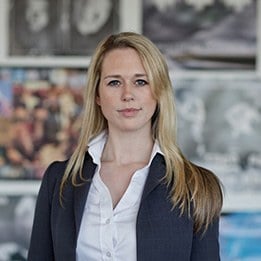

Head of legal - Australia and New Zeland | FIFA Women's World Cup Australia - New Zealand 2023


Emily Jackson
Head of legal - Australia and New Zeland | FIFA Women's World Cup Australia - New Zealand 2023
Could you tell us a bit about your significant successes in your role?
One of the biggest challenges of this role has been building a robust legal and compliance function in an incredibly short time period. FIFA Women’s World Cup has only been in existence for just over a year, and yet in that time we have expanded to over 250 employees across two countries. Building a legal team and processes and implementing them while dealing with the day-to-day workload of tournament planning has meant an incredibly busy couple of years, but incredibly satisfying ones!
To add to this, for the first time the FIFA Women’s World Cup is being run by a direct subsidiary of FIFA, rather than a local organising committee affiliated with a member association, which means we had to build the legal, governance and compliance functions without a local operating model to base ourselves on. I am incredibly proud of my team and how they have risen to the challenge.
In your opinion, what are the qualities and skills needed to form a strong legal team?
I think the members of an in-house team need to be relationship-focused, cultivate an agile mindset and have ability to think strategically and pragmatically. The success of an in-house team is dependent on the capacity to build strong internal relationships with functional areas, and use these relationships to effectively communicate risks, manage conflicting priorities, and break down silos internally. A strong negotiation skill set is crucial, with the ability to understand the strategic and commercial drivers of any given situation. In my view, a strong legal team also needs to be comprised of diverse skillsets, and diverse individuals – with a range of life experiences and different styles of approaching and solving problems.
What is the biggest risk to your industry, and how are you contributing to prepare your organisation for this?
Both the sports and events industries are constantly changing and facing challenges associated with strong cultural headwinds. The sporting industry is being forced to grapple with, becoming increasingly involved in the political and human rights arena. Understanding the risks and opportunities in this space is crucial, and proactively developing consultative policies is one way that sporting organisations can prepare for these issues. In addition, player safety, and specifically the development of robust concussion policies, must be paramount when looking ahead to the future of sports generally. Finally, the risks of climate change to sport are becoming increasingly apparent, so a big focus for our team is sustainability, and ensuring that we are doing our best to reduce the environmental footprint of the tournament. We have worked hand in hand with the sustainability team to implement sustainable procurement policies, and work with stakeholders to get positive outcomes here.
What challenges have you overcome to get to the position you are in today?
I have come from a very privileged background and had a lot of support in the development of my career, so I consider myself very lucky. However, even though women’s sport is becoming increasingly popular, the upper echelons of most sporting organisations are very male-dominated spaces, and this structural inequality can be evident in many workplace policies and processes. In addition, the sports and events industries can be incredibly competitive, and require a lot of travel, long hours, and high-pressure work, and therefore are not always conducive to family life. Seeing a sustainable pathway forward into leadership positions as a woman can be challenging at times. Both industries are working hard to overcome this reputation, and I hope to be part of the changing face of the sports and events industry and use leadership positions to encourage change in this space.